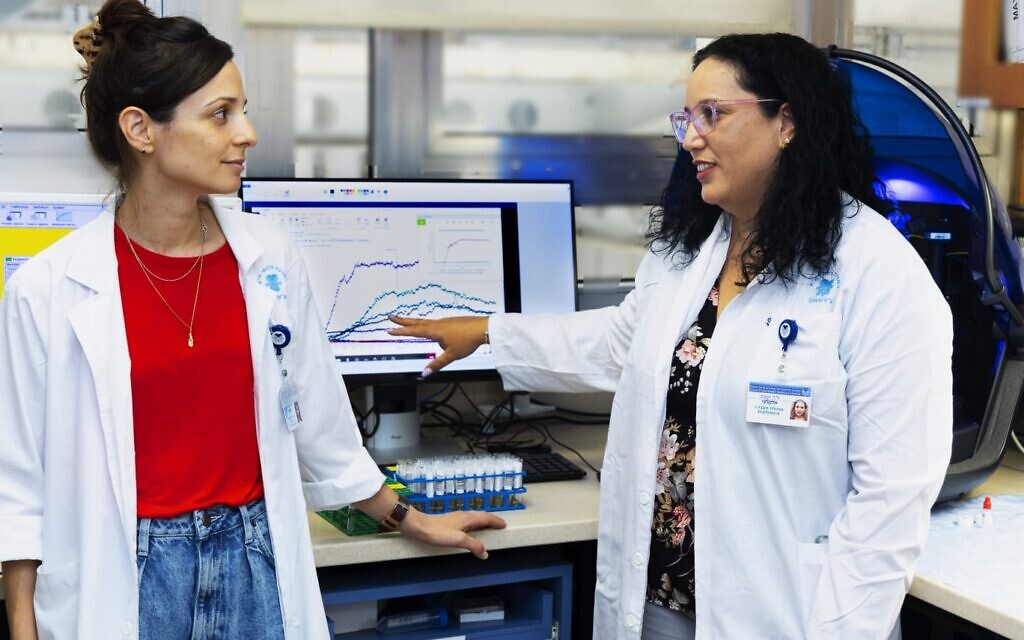An Israeli hospital has become the first in the country to offer an advanced test to detect a brain disease that is notoriously difficult to diagnose.
Creutzfeldt-Jakob disease (CJD) is caused by an abnormal infectious protein in the brain called a prion. This protein has unique properties that make it act like a virus or bacteria, and cause other prions to mimic its behaviour. The abnormal protein deposits are spread throughout the brain, causing widespread damage that progresses rapidly. Symptoms include decreased intellectual faculties, memory loss, and altered speech and personality.
This disease is incurable and usually kills the patient within a year of its onset. But the diagnosis is important because it will avoid exposing patients to often painful treatments, which are appropriate for other degenerative diseases but not Creutzfeldt-Jakob disease, giving them false hope and tempting parents who present a genetic risk to take preventive measures by examining their fetuses.
Get our free daily copy via email so you don’t miss out on any of the best news! FREE SUBSCRIBE!
CJD is disproportionately present in Jews of Libyan and Tunisian origin. It is estimated that thousands of carriers of the E200K mutation responsible for CJD live in Israel, and children of only one parent are at risk of contracting this incurable disease. A small minority of carriers’ children develop the disease, but it is fatal to them.
Il n’existe pas de test de laboratoire communément utilisé pour détecter la MCJ, qui est particulièrement connue parce qu’elle peut être causée par la consommation de viande bovine infectée par l’encéphalopathie famine de spongiforme la conliforme bovine mad cow disease.
Diagnosis is complex and often depends on a combination of tests. Brain biopsies are not performed on living patients due to the infectious nature of the disease and MRI is not completely conclusive.
People whose genetic heritage increases the risk of being a carrier are encouraged to take the test, but many do not. When someone develops Creutzfeldt-Jakob disease (CJD) but the family is not aware of it, their members do not know that they themselves are at risk, and therefore have the opportunity to take steps to screen the fetuses of their offspring.
Sourasky Hospital in Tel Aviv is now one of dozens of hospitals worldwide to perform this test, allowing for a high-accuracy diagnosis based on cerebrospinal fluid analysis. It joins a few hospitals in the United States, but is the first in Israel. “This method is the first stand-alone test in the world that can diagnose Creutzfeldt-Jakob disease with high accuracy (92% reliable),” said Dr. Yfat Elkalai, Director of the Surassky Laboratory of Clinical Immunology.
She now expects her lab to analyze hundreds of samples annually using the established method Developed in Japan 11 years agoHowever, it has not been widely used due to the high level of expertise required to put it into practice.

Illustrative: 3D rendering of a male face with the brain highlighted. (Credit: kirstypargeter via iStock by Getty Images)
Since CJD is characterized by specific interactions between prions, the test can be performed by observing the interaction of a patient’s prions with prions from another source. The RT-QUIC technology, currently in use in Tel Aviv, uses prions from hamsters.
Human and hamster prions are observed simultaneously under laboratory conditions for five days, and certain reaction patterns, mimicking the behavior of prions in the brain, will confirm Creutzfeldt-Jakob disease.
Al-Qalai said Times of Israel “It is a difficult test to learn and perform, and we consider it very important for the detection of CJD that we introduced it in Israel. We hope that this will allow early diagnosis and that families who do not know they have a gene that puts them at risk will be discovered and have the opportunity to obtain the correct information.”

“Subtly charming problem solver. Extreme tv enthusiast. Web scholar. Evil beer expert. Music nerd. Food junkie.”


